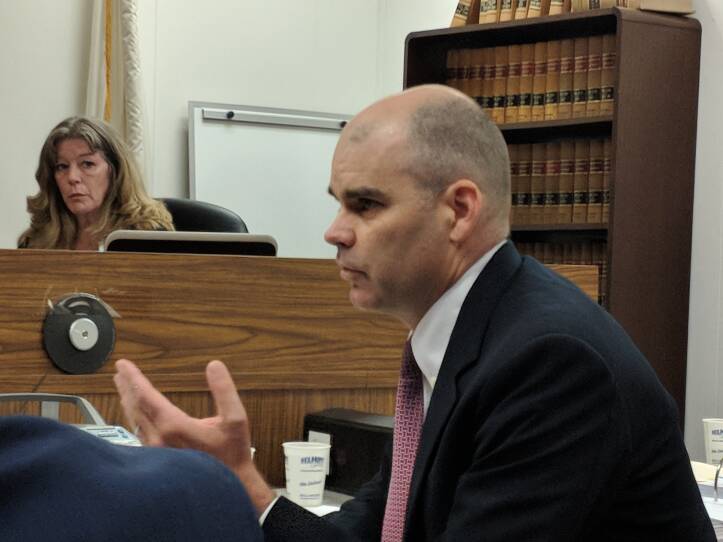After a stream of revelations of secret harassment and discrimination settlements, the town of Brookline has decided it will annually release information about settlements it has reached with plaintiffs and how much the town has paid out.
It is a highly unusual step; towns generally have not made information about harassment settlements easily available.
But some citizens of Brookline say the plan for annual disclosure does not go far enough because the town will still be able to include non-disclosure provisions in discrimination settlements, preventing alleged victims from sharing their stories.
A citizens group called the Brookline Justice League has proposed a change to the town's bylaws to prohibit the town from entering settlements with non-disclosure clauses — unless the victim requests one. The proposal will be considered by the Brookline Town Meeting in November.
Brookline has been in the news repeatedly in recent months as three recent discrimination and harassment settlements have become public despite their non-disclosure clauses. WGBH News has now obtained a fourth settlement, signed in May, in which the town paid $157,000 to an unnamed African-American driver to resolve his claim of mistreatment by police during a July 2016 incident.
The plaintiff had driven someone to a Walgreens in Brookline and was waiting outside in his car. He says he got out to stretch his legs and opened his trunk to remove a tool kit; at that point police approached him and ordered him to lay down in the parking lot. The police department doesn’t dispute that part of the story, but does dispute his allegation of what happened next: He says an officer stepped on his back and neck to keep him on the ground. A police investigation did not find any evidence to support that claim and the officers involved say it didn’t happen, though the man did go to a hospital emergency room after the incident.
Nevertheless, the city settled and promised to implement training across the police force on “managing implicit bias.” The settlement included the familiar non-disclosure provisions, requiring the plaintiff to “keep the terms and the existence of this Agreement … including the settlement amount, confidential.”
The settlement was made public only in response to a public records request by the Brookline Justice League.
The town has paid out a total of $718,000 in the four settlements than have now become public.
The problem with non-disclosure clauses “is what we've seen in the Harvey Weinstein case, what we saw with the Catholic Church, is that problems that should be dealt with publicly are being swept under the rug,” said the Justice League’s Brooks Ames.
Ames says it is not enough for Brookline to annually summarize the number of settlements and the total the town has paid out, and he thinks the town has taken that step only to get ahead of the town meeting vote. "That's half a loaf. And I am not even sure it's half," he said.

Still, the plan to release an annual report is unusual. “Most towns do not release this sort of data, and it's usually a fight to get access to any kind of data through public records requests," said Oren Nimni, an attorney with the Lawyers Committee for Civil Rights and Economic Justice. “This is definitely a step in the right direction and will allow the citizenry to better understand how the town is using their money.”
But Nimni agrees with Ames that as long as the town continues to include non-disclosure clauses in settlements, alleged victims cannot share their stories and identify possible patterns of misconduct. “It is hard to get a real grasp on the breadth of this problem, and [transparency] would be important in actually looking to the root of why these cases keep popping up.”
The secrecy also makes it impossible to see how Brookline compares to other communities.
Three of the four Brookline settlements since 2017 have involved allegations of racial discrimination within the Police Department. But Andrew Lipson, Brookline's new chief of police, says the police are not fans of secret settlements either.
“I think a lot of the officers feel challenged by the settlements because oftentimes a settlement does not mean that they have been proven to have done something wrong,” Lipson said. “Many times they would be open to having everything aired out in public because they feel like they're doing the right thing.”
Lipson says police are human and can make mistakes, but he does not believe the department has a racism problem.
“We take a lot of pride of what we do. The officers here that I've experienced — it's a diverse department. The officers do extraordinary work under difficult and complex circumstances on a daily basis. And I'm proud of the work that they do.”
.





